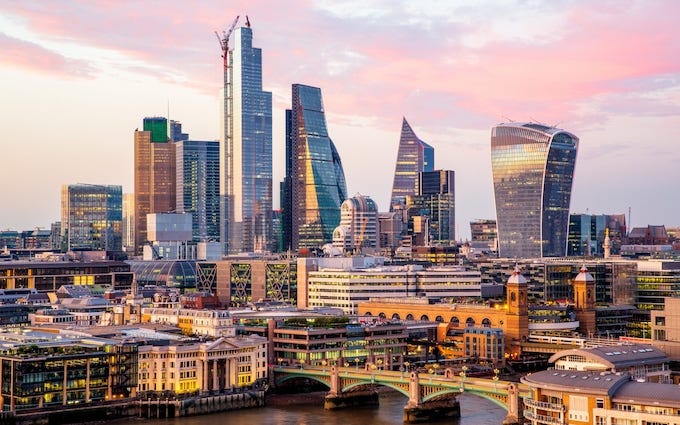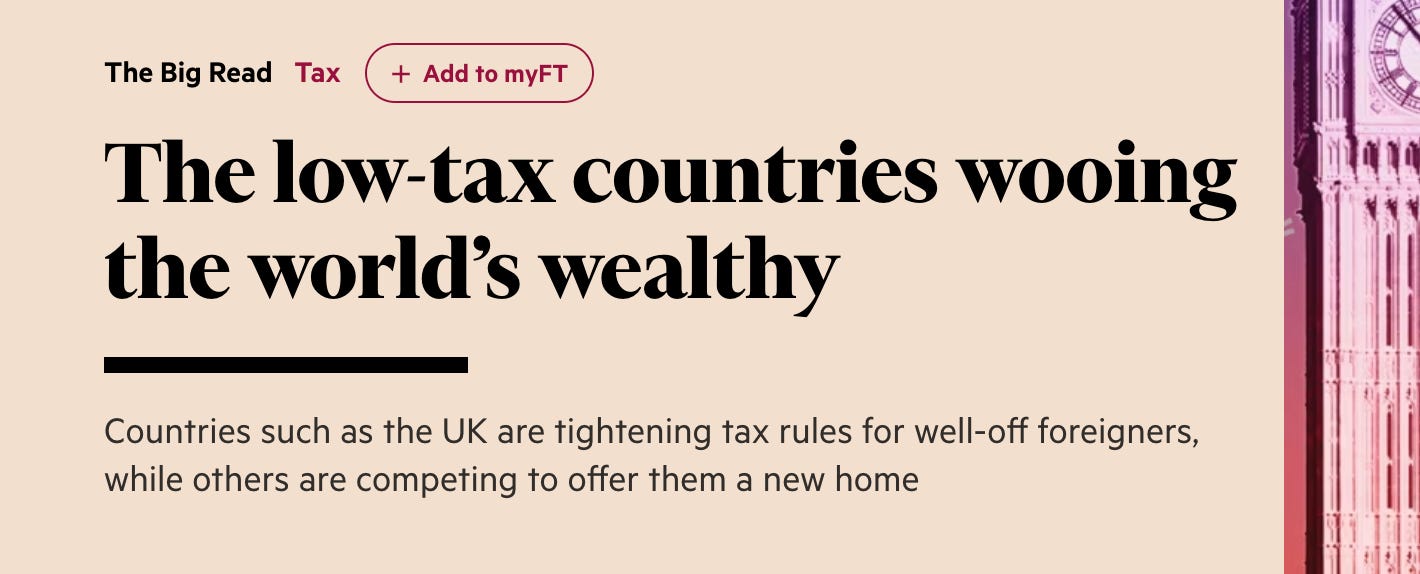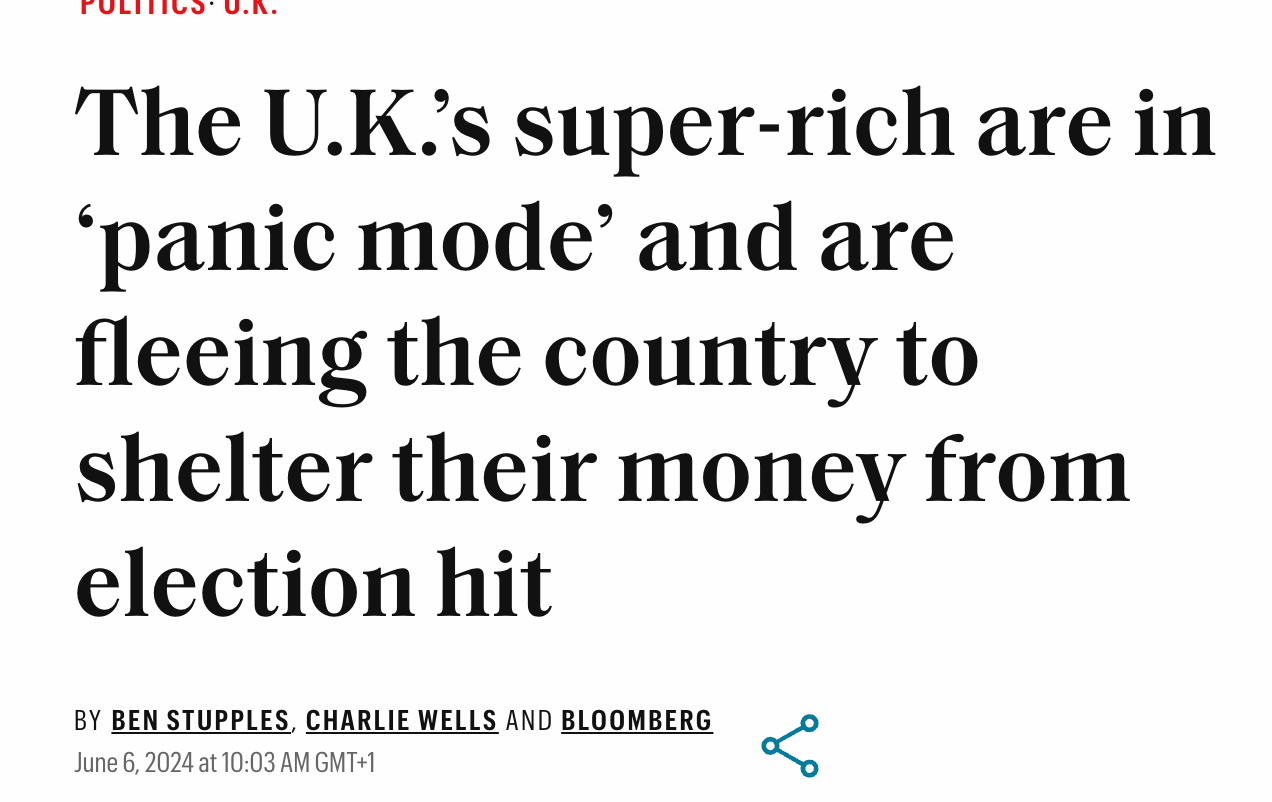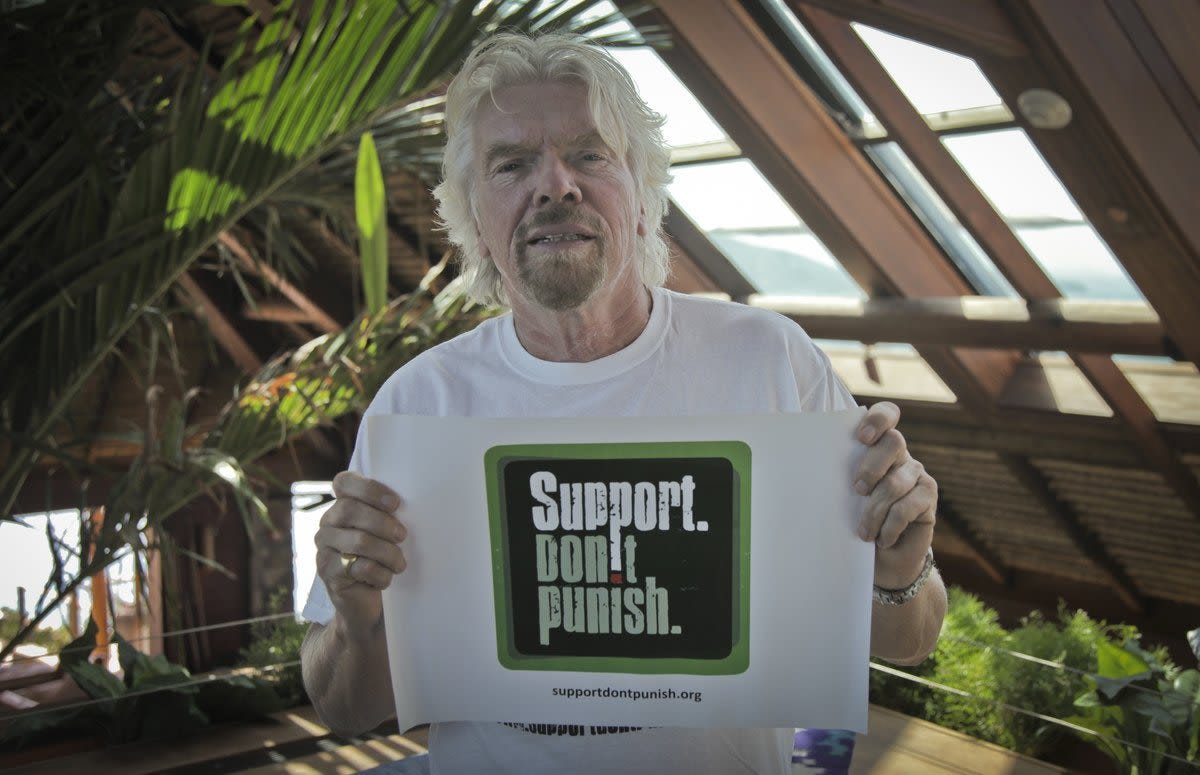5 Really Cr*p Ideas
Labour is back in power so left-wing think tanks and Unions are floating ideas for the Government to take up. Here are 5 they should not do!
We have all been there. You sit down for dinner with friends, open a bottle of wine, and after running through the usual chat on kids, the health of our in-laws, and upcoming holidays, suddenly the discussion turns to politics. You carefully meander through the conversation but suddenly someone, it could be your closest friend or your mate’s date, proposes an idea … an idea they believe will solve our current problems…. an idea you know though is truly crap.
So I thought I would quickly write down 5 of the very worst ideas that seem to float around the policy world. These really crap ideas have been around for ages, are misguided, backed up by rubbish evidence, and would inevitably make Britain worse off in the long run… so here they are:
1 - Capping rents and house prices - to solve the housing crisis.
There is undoubtedly a housing a crisis in the UK. The crisis extends across most of the Western Hemisphere. Getting on the housing ladder is increasingly out of reach for the low paid, the young, and those without wealthy parents in Britain. Between 2005 and 2022 the average house in Britain almost doubled in price. Wages stagnated in that time. The median UK house price-to-income ratio for 25-34-year-olds went from 4 in 1995/96 to 8 in 2016. Considering banks demand a 20% deposit (allowing them to lend 5x your salary), most houses have moved in to the unaffordable section for young people working hard. Rents have become more expensive as well, certainly in fashionable locations like London and Manchester.
Understandably, most people’s flirt with the idea of capping prices in both the sale and rental markets. This is a terrible idea!
Regulating prices inevitably has two impacts - to reduce the supply and reduce the quality of supply. If the cost of housing is regulated fewer people will want to build houses, and those that do will keep costs low, reducing the quality. There will be little incentive to look after the stock of housing we have, no incentive to spend more on the house than the price cap says it is worth. Those people that are willing and able to pay more than thee price cap will simply scoop up the top of the market, forcing people who the cap is designed to help in to lower quality housing brackets.
Still think it would work? Look at the US where cities like New York and some states have experimented with rent controls. A researcher in the US found “29 percent of rent-controlled housing in the United States was deteriorated, but only 8 percent of the uncontrolled units were in such a state of disrepair”. The same in Sweden where prices for certain housing is capped, severely restricting supply, meaning the waiting list for affordable housing was half a million long a seven-fold increase over a 15 year period. A paper published in 2018, looking at the impact of rent controls in San Francisco, found that “landlords treated by rent control reduced rental housing supply by 15%, causing a 5.1% city-wide rent increase”. Thats right - rent controls actually increased the cost of renting in California.
2 - Universal Basic Income - to solve poverty.
A personal favourite in the crap idea category. There are few ideas that are given such a lot of airtime. Universal Basic Income (UBI) has been heralded on both the left and right of politics across Europe and America. The idea, in its most basic sense, is to give every person (of taxpaying age) a ‘no-strings attached’ cash entitlement. This could be £1,000 per month, irrespective of your age, your wealth, whether you work, whether you have committed a crime, or use public services, etc.
Most people instantly question the moral validity of low and middle income households paying tax that is then paid out in welfare to rich households. And a lot of others balk at the idea of giving people who do not contribute to society a freebie.
My personal problem with UBI is the impracticality of it. A basic payout of £10,000 per year for all working age adults would cost the UK Treasury more than £410 billion. At the same time £10,000 would hardly touch the sides for most working families. It would not be enough to cover the cost of rent and utilities for low income households in London. Nor would it be enough to cover the cost of childcare for pre-school aged children. It doesn’t take in to account varying costs of living in different parts of the country, or what income/outgoings the recipient has (for instance a household with two working parents and one teenager is very different to a household with a single parent with three children).
As you increase the entitlement, so the Government costs go up, and it slowly becomes utterly affordable. And so you come to the second great fallacy in the UBI argument - that UBI should be means tested…. that is to say, it should be reduced for individuals and households according to their wealth and earnings. Now of course, this is a very reasonable statement to make, until you realise that is effectively the welfare system we currently have. It is called Universal Credit, not Universal Basic Income.
3 - Taxing big business and the rich - to solve inequality.
Who doesn’t love the idea of taxing the rich. They can afford it after all. The problem is that they can afford to avoid it too.
When taxes go up, it’s rarely the rich who end up paying, largely because they have the capacity to dodge and avoid it. They. move to low tax jurisdictions, defer pay to periods with lower taxes, or change the shape of their pay to benefit from tax advantages (for instance putting assets in to a trust, or diverting them in to capital gains). It’s happening right now (see headlines below)! Sir James Dyson, Sir Jim Ratcliffe, Lord Ashcroft, The Goldsmith family, have all diverted their wealth and income to lower tax jurisdictions in recent years. It’s nothing new… the Rolling Stones, Rod Stewart, Roger Moore, and John Lennon all left the UK in the 70s to escape the 75% top rate of income tax and 95% top rate of tax on investment income. The loss to the Exchequer was huge then, as it would be again if we returned to the days of Dennis Healey promising to tax the rich until their ‘pips squeak’. Look at research from Harvard University, where there is a clear correlation between the density of wealth and the marginal rate of tax.
The economic reality is that taxes reduce economic activity and investment. Higher taxes tend to drive businesses people, workers and wealth abroad. One thing that reduces inequality is economic growth. The UK is the perfect example. Oxford University recently compiled data on economic inequality in the UK over a 700 year period, showing inequality far higher in the period before the Industrial Revolution. Between the beginning of the 20th century and the early 80s inequality fell , only increasing slightly recently, but remaining far below it was pre-enlightenment and industrial revolution.
4 - Scrapping exams and the 4 day school week - to make children happier.
This has to be one of the most tedious bad ideas out there. The premise is that school is awful, that children dont learn in school… in fact, some say children don’t really need to learn at all, they should instead be allowed to run free and play all-day! Sounds extreme… well the 4 Day Week Campaign believes it would “dramatically improve the lives of teachers who are overworked, stressed and burnout”. Their campaign got more than 42,000 signatures on parliament.uk. Good Morning Britain hosted a guest who said a 4 day week was a good idea because ‘children wanted it’. In 2020 a letter from a campaign group called Rethinking Assessment argued that exams were bad for children’s mental health. In 2019 the National Education Union (who have opposed every evidence based positive education reform introduced in 20 years) balloted primary school teachers on whether to scrap SATs for 11 year olds. This primary school teacher went on to say during the pandemic that SATs were ‘old fashioned’ and another type of assessment could surely do the job. Well we tried teacher assessed grades that summer, and that was a categorical disaster.
Education inhabits a special place in the world of woke virtue politics. People believe children should be able to run free, learn what they want to learn, decide when to go to school or not to go to school. Much of this reflects a weird middle-class bias against authority, knowledge and norms. It also represents a deeply misconceived ill-informed perspective on pedagogy and childhood.
The first responsibility of any school is to keep children safe, the second is to make sure they learn. The science on how children develop knowledge has been particularly well established now for nearly half a century (feel free to read Make It Stick: The Science of Successful Learning, or John Hattie’s Visible Learning, or Stanislas Dehaene’s How We Learn). It comes from instruction, in a teacher led environment. It is embedded by asking children to write out what they have learnt and contextualise it against other things (for instance… the second world war last 6 years and resulted in a victory for the allies. It was preceded by a period of economic instability in Germany caused by the First World War and the Treaty of Versaille. It led in part to the partition of Germany and the Cold War). Finally, learning becomes knowledge when children are able to recall facts in a test environment, and this happens only when children are tested frequently on what they have learned. These three steps require good teachers, in the classroom, and exams. Without those three things, children aren’t learning and wont be ready for adulthood.
Facts are the foundation of skill. You can’t develop skills without knowledge, and they rarely come naturally. You can’t have a qualified opinion on how to navigate a situation without understanding the core concepts at the heart of the issue. Children need to understand the principles of numeracy, literacy, history, biology, chemistry etc… if they want to be able to deploys critical thinking and creativity skills effectively in the modern world.
5 - Legalising drugs - because taxing them would be advantageous, and what harm do they do anyway.
Finally… lets legalise drugs so we dont have to police it and instead, we can tax it! If only I had a Fiver for every time I heard this trotted out at dinner! There are some high profile backers of the ‘free-weed’ movement, none more so than US Senator Bernie Sanders, the Dalai Lama, as well as entrepreneur and tax-exile Richard Branson.
I’ve always responded to this argument by asking the basic question - do we want more people doing drugs? Most people say no. But while most people believe heroin or cocaine are bad for you, a lot of people believe marijuana use is safe. This is, of course, rubbish.
A study of people who had used cannabis for a long time and frequently, showed they had lower IQ over time and were ‘slower’ - “users' IQs declined by 5.5 points on average from childhood, and there were deficits in learning and processing speed compared to people that did not use cannabis” - they developed “memory and attention problems”, and they found (drum roll) “The impact of cannabis on cognitive impairment was greater than that of alcohol or tobacco use”.
Then there is the potential risk of developing paranoia, psychosis and extreme mood swings. The head of the Royal College of Psychiatry said ““If you start smoking cannabis—especially the strong stuff, and most of it now is strong—regularly, say once a week from your mid-teens, your risk of developing a psychotic illness is five times higher than usual”
The argument that we could tax usage and reduce the public health impact via expenditure is understandable. But I promise that if you legalise weed, the black market will adapt to produce more extreme variants like spice, monkey dust and other synthetic canaboids and opiates.
So there we have 5 crap ideas. So much about politics and policy is avoiding making terrible decisions. There are different ways to make bad decisions in Government, for instance via the poor execution of good ideas. Alas, the ideas listed here are bad whatever the scenario.













